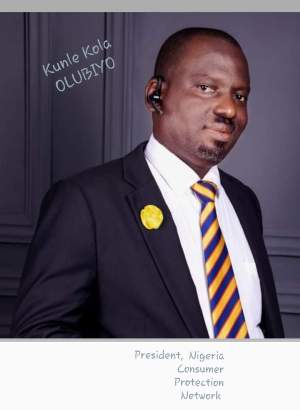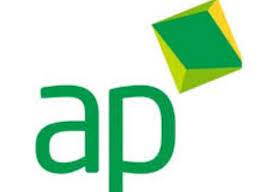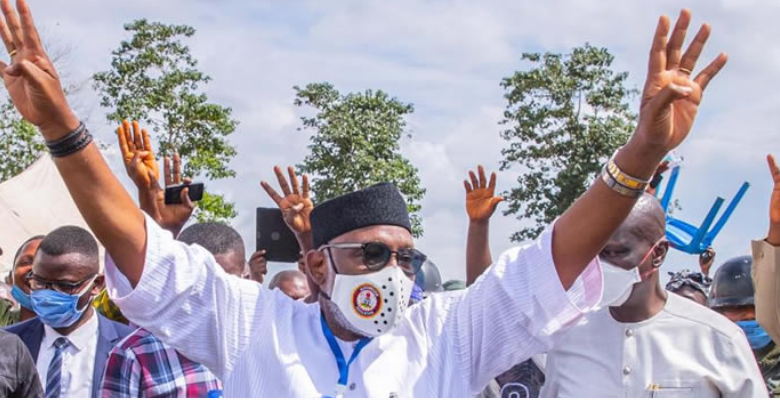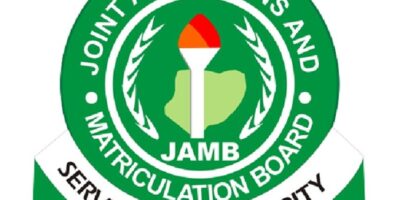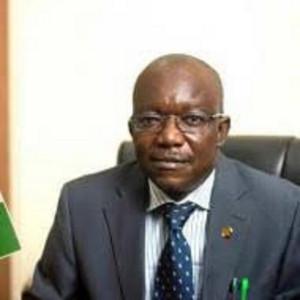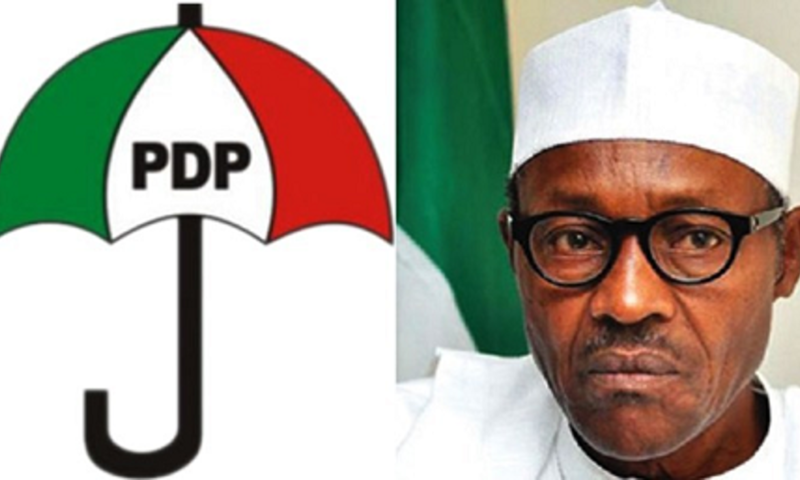Nigeria’s Questionable Electricity Export

Recently, members of the West African Power Pool (WAPP) converged in Abuja over plan to build 875 kilometre of 330 kilovolts power transmission line from Nigeria to connect four other countries up to Burkina Faso.
The announcement of this project called, the North Core Interconnection Project, sent some shocks to stakeholders in the Nigerian power sector, particularly, the Nigerian electricity consumers who are yet to get any value for what they pay for electricity.
But, according to the Chairman, Executive Board of WAPP and the acting Managing Director of the Transmission Company of Nigeria, TCN, Engr. Sule Abdulaziz, the power meant for this export project is the unutilised electricity across the various Generation Companies (GenCos). He also said new GenCos are coming on board just to export electricity to other West African countries.
What is more of concern is the revelation of the WAPP Secretary General, Siengui Apollinaire Ki, that the 570 million US dollar project is being financed by the World Bank, the AFD, and the African Development Bank (AfDB). Mr Ki precisely said the multilateral donors will be funding the segments for each of the five countries – Nigeria, Niger, Benin, Togo and Burkina Faso.
This is another concessionary loan that the Federal Government Nigeria (FGN) will be taking from the donor assigned to it just to build a line for power export. This is also when the Nigerian power sector is crumbling over market and tariff shortfall in excess of N2 trillion. The World Bank is also giving about $2 billion dollar loan to Nigeria for the power sector while the German government is providing commercial loans for the Siemens Presidential Power Initiative.
These loans are already raising concerns as to their repayment means but yet, the government is considering more loans to build the North Core transmission line up to its border with Niger Republic in Kebbi state.
The World Bank recently announced that Nigeria is now the highest country in the world with citizens not having access to electricity after it overtook Congo DR in a recent survey. Despite this poor scorecard, the Nigerian government is ready for pro bono for other West African countries.
The Minister of Power, Engr. Sale Mamman, during the inaugural Joint Ministerial Council Meeting (JMCM) session of the WAPP workshop, said about two third of the about 600 million population in sub-Saharan Africa do not have access to power, causing widespread poverty and poor infrastructure of which women and children are made vulnerable.
Despite this, the minister supported the project, saying the government will give all its support so the construction can begin in August 2021. He also said 611 communities under the line route will have power delivered to them too.
The ECOWAS commissioner for Energy and Mines, Mr Sediko Douka, at the meeting in Abuja also said the North Core transmission line will be carrying 450 megawatts (MW) of electricity initially and can be expanded to 600MW in the first 10 years.
On the benefits, the WAPP chairman said, “Nigeria has the greatest advantage among these countries because the electricity is going to be exported from Nigerian GenCos. So from that, the revenue is going to be enhanced and a lot of people will be employed in Nigeria.”
Resetting The Power Sector
Nigeria at this moment struggles with power supply with the majority of the 80 to 90 million Nigerians with access to electricity having below eight hour daily supply, says the World Bank. According to grid records, the highest peak electricity on the grid only rose to 5,800MW this year but the average energy distributed has been around 3,500MW to 4,000MW recently.
Even when NERC compelled the DisCos on Service Reflective Tariff (SRT), the hours of supply are not commensurate to what the consumers pay as tariff while the DisCos continue to remit paltry sums of less than 45 percent to GenCos. These market issues must be first solved to ensure the availability of this utility service in Nigeria, FIRST!
No matter the benefit of the energy export initiative, the government ought to find a way to reset the power sector and instil market discipline among the operators so they can deliver improved services to Nigerians first before considering more energy export at this point.
As it is, we believe it is wrong timing to state this mission because Nigeria now needs additional power and the essence of the North Core project of WAPP is for exchange of power. Maybe by the time the project is completed hopefully in 2023, we might be able to export power but certainly not at this material time.
It is also worthy of note that Nigeria currently sells about 300MW of electricity to international customers through the 330kV Ikeja West (Lagos) to Sakete (Benin Republic) transmission line. These customers namely, NIGELEC (Niger), CEB of Benin and CEET of Togo, owe Nigeria millions of dollars, and even at a recent time, sought a write off. Yet, the country is harnessing its energy for them, and adding Burkina Faso.
It could be true that there is unused power on the grid as reports show that about 2,000MW of electricity is said to be unutilised daily across the GenCos in Nigeria and could be exported. However, a country that has not met local demands ought not to spearhead energy export especially to debtor countries.
What Nigeria and its power sector regulator – Nigerian Electricity Regulatory Commission should do at this material time, is to stop the disservice to Nigerians and rapidly solidify the Eligible Customer policy, to allow consumers opt out of the weak Distribution Companies (DisCos) and get their power directly from GenCos.
This way, the average 2,000MW unutilised power on the national grid daily can be supplied to industrial clusters which could in turn cut down the 40 percent electricity cost for goods production by members of the Manufacturers Association of Nigeria (MAN).
The World Bank this week announced that rising cost of goods and services have pushed 7 million Nigerians into poverty. One thing that can alleviate this condition is the improvement of power supply business and industrial purposes which could increase the cost of doing business while more firms will spring up to create jobs.
The government can also decentralise the transmission grid into regions and have private investors take a stake in its management. This could provide for a more robust network and ending the prevalent grid system collapse which has occurred for over 130 times in the last 12 years.
The DisCos’ franchise areas should be further reviewed with the aim of creating more DisCos to break the franchise monopoly of the current 11 DisCos. That way, electricity supply services can be improved faster.
But there is even a quick win to this – the Independent Electricity Distribution Network (IEDN) policy of NERC can be activated massively. NERC should licence more IEDN firms and create franchises for them to compete with DisCos on delivering power supply to Nigerians.
Nigeria should also increase the capacity from the hydropower companies as not doing this is a disservice to the citizens. This is because the hydropower plants – Kainji, Jebba and Shiroro, have a combined capacity of nearly 1,500MW which is already the average energy sent out by the grid most times in Nigeria.
Energy from the hydros is said to be cheaper compared to those from the over 20 gas-fired GenCos. This can crash the exorbitant tariff structure in place at present and guarantee more stable supply.
We also believe that there should be a political will to enforce utilisation of the power by the DisCos instead of the brazen load rejection by them. If we are really serious in getting power to Nigerians, the deliberate load rejection should have been seriously sanctioned by the regulator!
The government should pay more attention to urgently making the power sector work especially with the coming of the African Free Continental Trade Area Agreement (AfCTA). If this is not done to encourage local production for consumption self-sufficiency and for export, the targeted off-takers of finished goods and services is Nigeria where all finished goods and services from EU countries, Asia US and other African continents would be dumped on us.
Our Submission
It is on this basis that we are calling on the Federal Government of Nigeria (FGN), the Minister of Power, Engr. Sale Mamman, and the Nigerian Electricity Regulatory Commission (NERC), to urgently expedite action on the practical strategies that will put the power sector on the pathway of progress while considering the suspension of more energy export plans.
We are saying for instance, all the GenCos that have Power Purchase Agreements (PPA), Put Call Option Call Agreement (PCOA), Partial Risks Guarantee (PRG), Take or Pay Obligation and any form of power sales agreements, designed for the Nigerian Electricity Market (NEM), and are already
Contracted, should not be eligible to export already contracted power which Nigeria has worked out tariff for through the Multi Year Tariff Order (MYTO) and the Vesting Contract.
This is because the government has in one form or the other subsidized the cost of producing this electricity through consumers’ and taxpayers’ monies under the Nigerian Bulk Electricity Trading Plc (NBET), the Nigerian power pool. Hence, such energy cannot be sold to other countries in the name of export.
Any power firm that would need to export power, should build its transmission asset and acquire new turbines, separate from the ones already connected to the Nigerian national grid and should not be covered by a Nigerian PPA.
Kunle Kola OLUBIYO,
President, Nigeria Consumer Protection Network
(Issued on behalf of Nigerian electricity consumers / End Users of Electricity in Nigeria ).
Email :olubiyokunle@gmail.com


